If you’re as frequent a visitor to theme parks as I am, you probably think you understand them pretty well: the systems, the rides, and all the little hacks we adopt that give us a sense of ownership of these spaces.
But is there a side we miss out on? Can art show us something new about theme parks?
The Liminal Residency is “an alternative writers’ retreat which takes place in a range of neglected and unusual spaces,” assembling teams of writers to create works in response to these locations. I stumbled across it a while ago, but their most recent project in particularly caught my eye - Alton Towers, the biggest theme park in the UK.
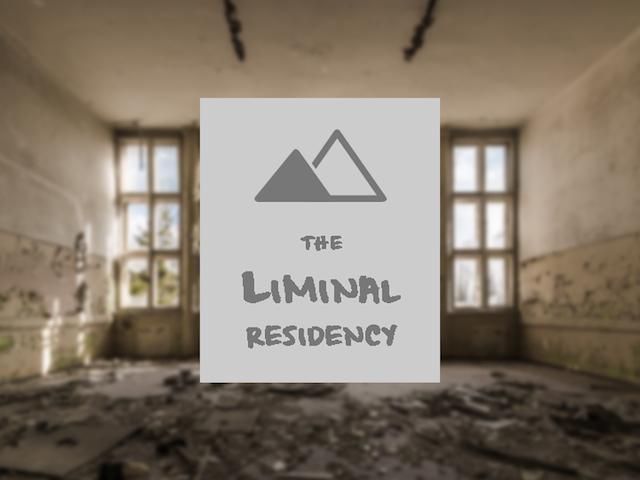
The resulting book is fascinating and full of unexpected, playful and moving responses to a place I thought I knew well. The majority of pieces take the form of short prose, exploring a variety of perspectives on how theme parks can define key moments in our social development and shaping our lives.
If you’re a regular to a site like this, you probably don’t need me to convince you of the inherent artistic value of great theme parks. But the book got me thinking about how rare it is to see work like this about themed attractions - to have one form of art respond to a very different one. So I got in touch with co-founder Krishan Coupland, who spoke with me about the project, their ambitions, and what he learnt in the process of making it happen.
Ben: Could you tell me a little bit about yourself and the Liminal Residency project?
Krishan: I never really know what to say about myself normally. But I write things, sometimes I write little interactive things, all sorts of things. I do a whole bunch of projects that are all basically related to writing, and the Liminal Residency is one of those.
It's me and Elouise Shepherd who organise all of the residencies. We work with different people for each project and have different experiences brought into each one. We just try to be as open as possible in terms of who we bring along, what happens on the residency and what we end up doing.
Ben: Had you worked with some of those writers before?
Krishan: No, I'd never met any of them!
Ben: Oh wow! That's quite a big thing to jump into with a group of strangers: “here we are at Alton Towers putting a book together.”
Krishan: It was very strange, yeah. They were incredibly patient with what was a very strange weekend. I proposed Alton Towers because I worked there for a brief period of time, and I found it an absolutely fascinating place that has a lot of neglected spaces as part of it, and contains a multitude of different spaces. We wandered into the towers themselves, which I think some people were a little bit nervous about because you don't know if you're supposed to be in there or not!
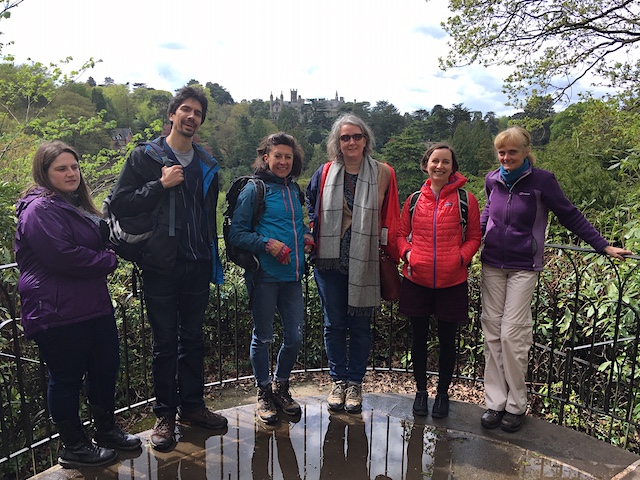
Ben: Can you tell me more about how the weekend of the residency worked?
Krishan: We were very lucky to get Arts Council England funding for the project - so we could all stay on-site in one of the hotels and use their conference centre as well, which was incredibly useful. We all arrived on the Friday, said hello to each other, had a bit of a wander. On the Saturday we spent the day in the conference room, in the hotels and in the peripheral areas of the park. And on Sunday we spent most of the day in the park and took turns each to lead a session.
The sessions were everything from a writing exercise, to a Vision Quest, to engaging with the landscape in an unusual way. It could be anything the writer wanted to do – they would lead the group through that for an hour or two.
In terms of facilitating during the residency, it was pretty useful to have worked there. I knew my way around the resort pretty well and knew how to get to some interesting bits of it; my role during the residency was largely, you know, the guy who used to work there.
Ben: What did you do when you worked there?
Krishan: It was my first job out of university. I worked as a porter in the hotel, and then I also briefly worked on the games team.
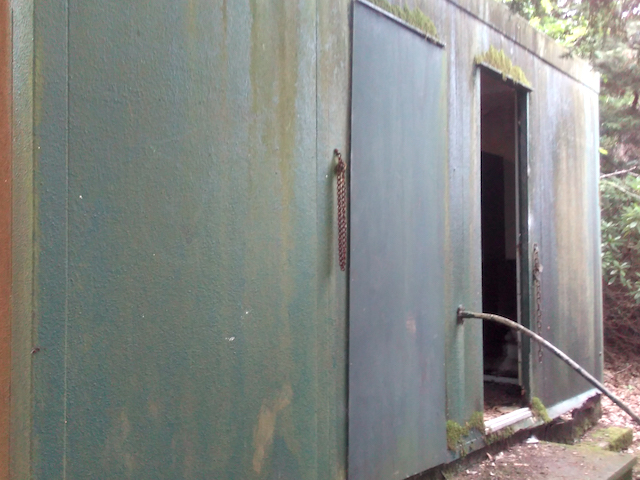
Ben: I assume the writers all had different approaches; how did that all fit together?
Krishan: Interesting things arose from it. For example, Gaynor Jones is an excellent flash-fiction writer, and she introduced some really interesting techniques in terms of editing and things like that. We did some of the other sessions in different areas of the park, which naturally gave them a different tone and feel. Each of them was a real different experience, giving us an insight into how that person worked and some new tools for our own work, in terms of how to write and how we make things.
Ben: I’m really interested in how an artistic project like this can offer a value maybe to the way that we engage with these sort of visitor attractions that are seen as “distractions.” And I don't mean to say that Alton Towers is necessarily the same thing as a Caravaggio or whatever, although there are definitely aspects of that kind of artistry to it. But I mean how these things are fixtures within our lives, right? And we sort of grow and change within them and in response to them – like you say, you worked there, and that is presumably something that has stayed with you. And how they shape the way that we see the world and interact with other people.
I'm thinking particularly of Alison Powell’s beautiful cycle of moments at the start of the book [a sequence of episodes about a developing relationship, played out in the shadow of the Oblivion rollercoaster]. In reflecting on what is within the theme park in an abstract way, it speaks in a much wider way to how we engage as a society, and how we as people engage with those attractions.
Krishan: A place becomes a reflection of how you treat it. So if you're wandering around a theme park doing some weird writing exercises, it's easy to treat that as like a bit of a jolly. It's not the normal mode of engaging with a theme park – where you're going there for a day off, a day of fun. But I think also if you treat somewhere as a place that has a history, as somewhere that can be something multitudinal and three-dimensional then it sort of necessarily becomes that. At least in your experience. So there was definitely some discussion of ways of seeing and ways of experiencing when you're in a place. And I hope that the book reflects that a little bit.
And again, having a book that exists in the world that treats Alton Towers in that way is, I hope, presenting another vision of it and another way of seeing it that will contribute to the many different ways that people engage with that space.
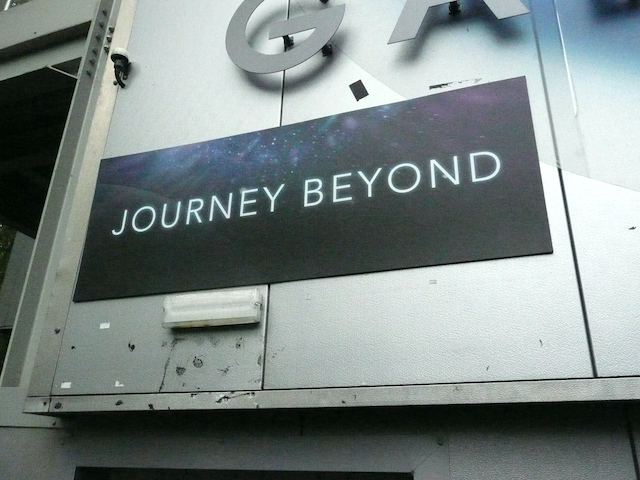
Ben: Have you had any responses from people who've read it that have surprised you or stuck with you?
Krishan: We've had some interesting responses. I think what it generally prompts is: almost everyone has a memory relating to Alton Towers. So often on reading the book, people will want to share those memories.
I did a lot of research, and I've always known more than the average person about the park. So hearing these memories from these people – and they're often very specific, very specific memories that feel like bits of the park I've never been able to see before – is wonderful.
Ben: It's interesting that you mention doing research into the history of it. I noticed that it kind of runs through all the pieces – but in particular with your own contributions, this real desire to uncover and explore the deep history of the park. I definitely learnt some new things! What was it about that that you were drawn to as a writer?
Krishan: I've got a particular fascination with derelict spaces. That's something that really interests me; that there's this theme park that is one of the premier attractions in the UK, possibly the biggest – they certainly say they're the biggest – and thousands and thousands of people every day go there, and yet there's still these abandoned spaces. Several abandoned buildings, several abandoned paths and areas within the park itself. It just seems crazy to me. And also, like a microcosm of how our history in the built environment is all around us but we just ignore it, or don't see it, or build all over it, and you can really see it at work in Alton Towers.
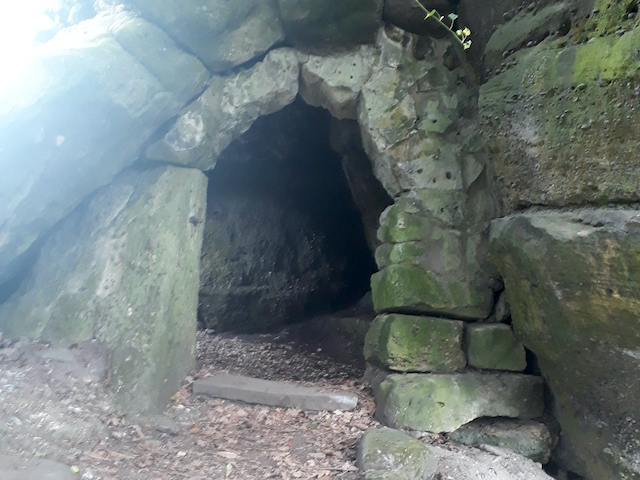
Ben: In the package with the book, there was a couple little surprises. The polaroids, and I got a fragment of poncho. Why was that an important thing for you to include?
Krishan: The photos were photos that me or one of the writers took during the weekend, made into polaroids, and the samples are all a range of different things from that weekend. The ponchos were actually gifted to us by the conference centre, as a mark of their enthusiasm for customer service, so... That was wonderful, it was raining terribly that day. Very useful, and we've shared them with the world.
In one sense it felt appropriate to do this for Alton Towers, because visiting a theme park... It's this collection of things, it's this day that you almost unpack, and you almost always end up with a souvenir at the end of it. You always end up with maybe a photograph or something like that, so thematically it felt kind of right to do these things. But I also really like the idea of an archive being broader than necessarily just written material. So there are 200 copies of the book and that's all there will ever be, but each of them comes with a sample, each of them comes with a polaroid, and that's how they'll be indexed in libraries and things like that.
I think you preserve something more when you include a physical object, when you include a photograph, things like that, and I think it creates a more holistic picture of the place. And these things aren't going to live forever. I would find it immensely exciting to find some old bit of something from Alton Towers in a bookshelf somewhere. So in a sense, it's a bit like a time capsule as well. Just preserving that little thing for some time in the future.
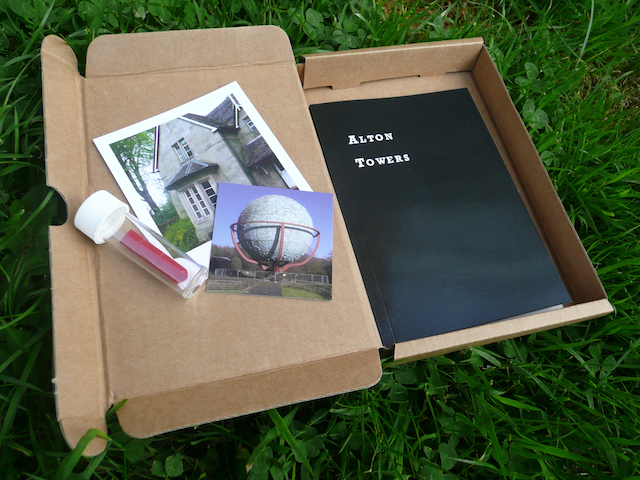
Ben: Was there anything – specifically for you, someone with history with the park and the place – was there anything that you came out of the other side of the residency either having learned about the place, or a change in perspective?
Krishan: Yeah. I had one vision of it from the time when I worked there. I was much younger then and was probably a little bit intimidated by the place. You know, it was this huge resort, I am just some guy who doesn't really know what he's doing. I was just kind of scared of messing up the whole time. But going back and exploring it in this way... I also like exploring a place very thoroughly - it makes you feel as though you slightly own it. Or at least you're very comfortable there. So I think at the start of the weekend I was a little bit uncomfortable, a little bit nervous, a little bit over-awed by the place. And by the end, I really felt I'd come to know it, and come to own it in a certain way. And certainly I'd seen bits of it that most people would never see, and related to it in some quite strange ways that perhaps people never would. So that made me very comfortable there, and it gave me a real sense of ownership and connection with the park.
Ben: And do you think approaching it from an artistic perspective gives you a different view?
Krishan: I don't know whether the artistic perspective inherently makes it different, or whether it's all of the stuff that comes with enacting an artistic practice in that environment. The outcome of this, what I was trying to make, was this book and some pieces for the website, interviews and things like that. I suppose I was looking at the park in a different way because of that, I was interacting with it in a different way because of that. I think part of doing art is that in the course of actually making, you do things differently than you normally would do, and you see things differently that you normally would do. You're definitely exposed to things in a different way.
Ben: Are there other places you're currently looking at for the next residencies?
Krishan: We've got a couple on the agenda to investigate. In terms of theme parks, I'm very interested in Spree Park in Berlin, which is a completely abandoned theme park, which was one of the only theme parks available inside Germany. And outside of theme parks, we're doing something with laundrettes. And we've got a lot of creaky old hotels and haunted buildings.
The Alton Towers book is available through the Liminal Residency website, www.liminalresidency.co.uk/portfolio/alton-towers-resort.
TweetThis article has been archived and is no longer accepting comments.